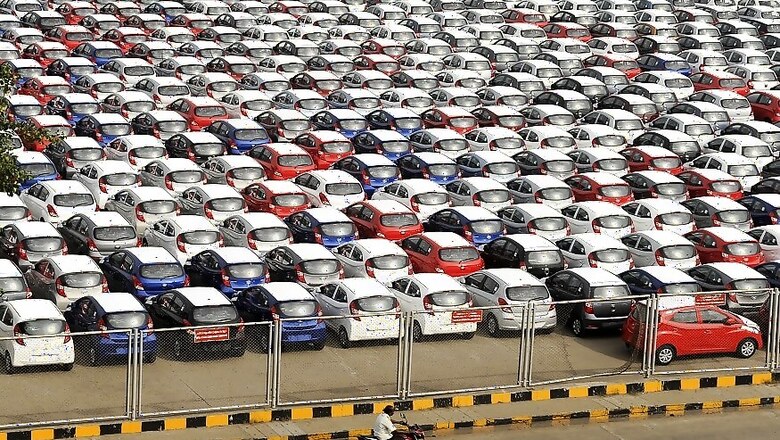
views
The very technically inefficient and behind the times, Motor Vehicles Act, 1988 stands amended pursuant to a much-awaited Amendment. The Amendment is likely to affect the quantum of fines, regulation of taxi aggregators and most important of all, vehicle recalls by car manufacturers. Although consumer focused, the suggested changes relating to mandatory recalls is likely to have an additional financial exposure to the already beleaguered auto industry. The key highlights of the legislation and its potential impact have been attempted to be catalogued.
Vehicle recalls
Mandatory Regime: A first of its kind alignment with global standards where a mandatory policy for vehicle recalls is being introduced and which is likely to replace a “without teeth” Voluntary Code on Vehicle Recall, formulated by Society of Indian Automobile Manufacturers and the relevant Ministry.
Introduction of a Whistle Blower Structure: The Central Government will now be empowered to direct a manufacturer to mandatorily recall motor vehicles, if a defect is to cause harm to the environment, the driver, occupants or other road users. This is slated to be achieved by introducing a reporting mechanism where a prescribed percentage of owners or a testing agency or interestingly any other source reports such a defect to the Central Government. This also extends to defects in components.
Liability of a Manufacturer upon a Vehicle Recall: A manufacturer can be directed to (i) reimburse the buyers for full cost; or (ii) replace the defective motor vehicle with another motor vehicle of similar or better specifications or repair it; and pay such fines and other dues in accordance with rules made by the Central Government in this regard.
Compulsory Reporting by the Manufacturer: The Amendment requires a manufacturer to compulsorily inform the Central Government and initiate recall proceedings, if a manufacturer notices a defect in the motor vehicles manufactured by it.
Safe Harbour: If a manufacturer voluntarily informs the Central Governments and initiates a recall, such manufacturer will not liable to pay the fines mentioned above. However, the provision is unclear on whether such leniency would be granted if a manufacturer admits to a defect in the course of investigations.
Industry issues and remedial measures to be implemented
Relation between OEM and the supplier: Between the manufacturer and the auto component supplier, attention will have to refocus on existing and potential contracts for allocation of risk in the event of statutory defects. An industry, known to operate on purchase orders and loose contracts may have to reassess the verbiage of existing and potential contractual arrangements.
Crisis Management and Risk Mitigation Policy: Possible reputational damage to brand value by potential misuse of the reporting mechanism will become an important issue as most auto players operating in India do not have a trained frontline recall and crisis management policy prepared by specialist advisors. Importantly, the element of “defect” has been extended to cause harm to the environment and third parties. It may have helped if the provisions were more precise on the import. In the age of social media, a statutory whistle blower mechanism could potentially be misused and thus affecting the brand and potential sales pending an investigation.
Nature of Fines: It will have to be considered as to how a regulator enforces levying of fines and directing recalls as there is no clear guideline provided so far. Judging the way, recent regulators (RERA/ CCI) have been proactive, this could be financial game changer for an industry which has enjoyed lax enforcement regulations.
Balance: The key provisions provide for a further issuance of rules which are likely to provide the fine print of the detailed mechanics. It is extremely critical the industry participates constructively so that the rules to be issued are balanced to provide reasonable global standards for self-regulation coupled with an eye on avoiding overregulation hindering growth for an already burdened industry.
(The article is authored by Zakir Merchant (Partner), D. Preethika (Senior Associate) and Saranya Mishra (Associate) – Khaitan & Co. The views, thoughts, and opinions expressed in the text belong solely to the authors.)




















Comments
0 comment